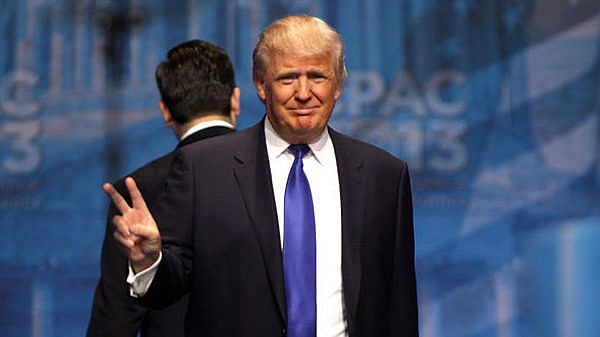New Delhi: The truce reached by US President Donald Trump and his Chinese counterpart Xi Jinping last month seems to have come to an abrupt end.
In a series of tweets Thursday, Trump announced that his government would be hiking tariffs to 10 per cent on $300 billion in Chinese imports from 1 September.
The US had already levied 25 per cent tariffs on $200 billion worth of Chinese goods. In response, China hiked tariffs on $60 billion of US exports to their country.
If Trump does go on to act upon his recent threat, every single export from China to the US would be facing a higher tariff.
Understanding uncertainty
Broadly, there are two major effects of trade wars on an economy.
First, the rise in tariffs makes cheaper imports more expensive for a country’s consumers. Thus, tariffs essentially make a country’s consumers worse-off.
Second, a more indirect but profound effect of trade wars is the rise in uncertainty — which can be defined as a change in expectations among firms and consumers that economic conditions are unlikely to remain stable in the near future.
Also read: US-China trade war truce shows Trump prefers business over Cold War
Its cost
Economic uncertainty comes at a massive cost. Both companies’ and individuals’ decisions are determined by their expectations of how the future might be. So consumers tend to change their consumption habits if they assume that prices might rise in the future.
Moreover, uncertainty has a profound effect on how companies decide to make their long-term investments.
For instance, since the Trump presidency has indulged in trade wars across the globe, the amount of foreign direct investment coming into the US has rapidly fallen.
Currently, companies indulge in a complex form of manufacturing that involves ‘vertically integrated supply chains’.
This means that goods are no longer manufactured in a single country. Rather, the production of a single good involves several countries — as the good moves in and out of multiple countries, until it is ready to be sold to consumers.
The supply chain responsible for manufacturing a mobile phone, for instance, involves its chip being manufactured in Japan, its screen in China, circuits in South Korea, and its body in India.
Thus, with items moving in and out of a country several times, all the involved countries lower their tariffs on a range of goods.
Now with the increase in tariffs across the world, as goods move across countries, companies have to pay additional tariffs, resulting in the increase in cost of production.
Moreover, with companies uncertain over tariffs, they decide not to invest in either new plants or choose to invest in countries where the uncertainty risk is lesser.
Markets react sharply
Trump’s latest announcement has rattled markets across the Asia Pacific.
After rallying through the early part of the day, the yield on the 10-year US treasury note — considered the safest investment in the world — fell 1.9 per cent, its lowest level since 2016.
Markets across Shanghai, Hong Kong, Tokyo, and Soul also bled after Trump’s tariff announcement.
Also read: US-China trade war seen pushing jewellery making to India



